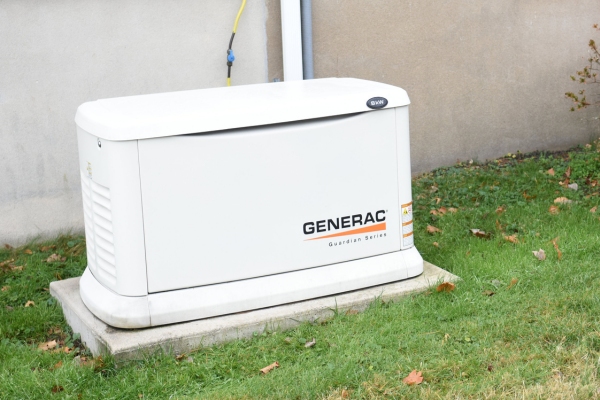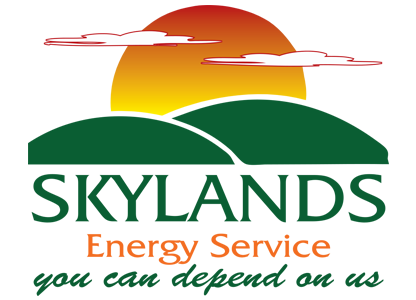
A whole-house generator is vital in keeping your home running smoothly and comfortably during unexpected power outages. As these emergencies become more common, a growing number of homeowners are investing in these essential systems and seeking ways to enhance their efficiency and cost-effectiveness. This article by Skylands Energy Service, a local backup generator service company, delves into the details of generator fuel consumption, offering crucial information to help you operate your generator more efficiently and lower operational expenses.
Varieties of Home Standby Generators
Table of Contents
- 1 Varieties of Home Standby Generators
- 2 Influences on Backup Generator Fuel Usage
- 3 Calculating Fuel Usage for Whole-House Generators
- 4 Minimizing Fuel Use in Backup Generators
- 5 FAQs: Understanding Fuel Consumption in Whole-House Generators
- 5.1 What Influences the Ideal Fuel Choice for My Whole-House Generator?
- 5.2 How Do I Precisely Calculate My Generator’s Fuel Efficiency?
- 5.3 How Does External Temperature Affect Standby Generator Fuel Consumption?
- 5.4 What Innovations in Whole-Home Generator Technology Aid in Reducing Fuel Consumption?
- 5.5 How Do Environmental Regulations Influence Fuel Choices for Generators?
- 6 Conclusion
- 7 Call Skylands Energy Service for Expert Backup Generator Solutions

Home standby generators are available in several varieties, each tailored to meet specific needs and preferences. Below is a summary of the primary types you might consider:
- Diesel-Powered Generators: Renowned for their durability and high efficiency, diesel generators provide a reliable solution for those requiring a robust and high-output energy source. They are especially suitable in locales where diesel fuel is easily obtainable.
- Natural Gas Generators: These generators connect directly to your home’s natural gas line, ensuring a steady and convenient supply of fuel. They are frequently chosen in urban settings where natural gas is readily accessible.
- Propane Standby Generators: Propane generators are favored for their eco-friendlier burn compared to diesel, characterized by lower emissions and quieter performance. These are particularly advantageous in regions where propane is readily storable and accessible.
Multiple considerations influence selecting the ideal generator, such as fuel availability in your area and your unique power needs. Each variety offers distinct advantages tailored to satisfy specific requirements and situations.
Arrange Your Consultation Now! Are you prepared to maintain continuous power in your home? Contact Skylands Energy Service today to discover our comprehensive range of whole-house generator options.
Influences on Backup Generator Fuel Usage
The capacity and power output of a generator significantly influences its fuel consumption. Generators with larger capacities, intended to provide greater amounts of power, inherently use more fuel. There is a direct correlation between the level of energy produced and the amount of fuel consumed, making it essential to choose a generator that aligns with your specific power requirements.
Oversizing can result in unwarranted fuel costs, whereas undersizing might force the generator to operate at peak capacity frequently, accelerating wear and diminishing efficiency over its lifespan.
Efficiency is a critical factor in generators’ fuel consumption. Contemporary models typically include features that improve fuel efficiency, like variable speed engines and sophisticated control systems that tailor power output to match load demands.
The generator type also affects its efficiency; notably, inverter generators excel at minimizing fuel use by generating power strictly when required. Homeowners must grasp these efficiency metrics to optimize fuel utilization and effectively control operational expenses.
Calculating Fuel Usage for Whole-House Generators
Specific formulas are utilized to determine the fuel consumption of a standby generator, taking into account its type, size, and efficiency.
- The fundamental equation used for both diesel and propane generators is:
(Generator Output in kW) × (Fuel Consumption Rate per kW) = Fuel Consumption (gallons per hour). - Natural gas generators follow a comparable calculation method but express fuel consumption in cubic feet:
(Generator Output in kW) × (Fuel Consumption Rate per kW) = Fuel Consumption (cubic feet per hour).
These consumption rates can differ based on the generator’s efficiency and design, highlighting the importance of consulting the manufacturer’s specifications for precise calculations.
For example, a mid-sized 20 kW diesel generator that typically uses 0.1 gallons per kW hour would, during constant operation, use about 2 gallons of diesel each hour.
Conversely, a smaller 10 kW natural gas generator, with a consumption rate of 100 cubic feet per kW hour, would utilize approximately 1,000 cubic feet of natural gas per hour under comparable operating conditions. These scenarios underscore the direct relationship between generator size and fuel type on fuel consumption, which in turn affects the overall operational expenses.
Secure Your Home’s Energy Reliability! Maintain power during outages by exploring the top whole-house generator options for your home. Contact Skylands Energy Service today to discuss the best solutions.
Minimizing Fuel Use in Backup Generators

Consistent maintenance is crucial for lowering fuel consumption in whole-house generators. Ensuring your generator remains in optimal condition through regular inspections, oil changes, and filter replacements, as well as verifying that all components are working properly, can greatly improve its efficiency and decrease excess fuel consumption.
Regular servicing boosts performance and prolongs the life of the unit. Skylands Energy Service’s services are tailored to maintain generators in prime condition, ensuring optimal operation when it’s most critical.
Additionally, transitioning to newer generator models can further decrease fuel consumption. Contemporary generators benefit from technological advancements, including refined engine designs that achieve better fuel efficiency and reduced emissions.
Investing in a modern generator model can prove economical in the long run, as the savings from lower fuel consumption may help recoup the upfront costs. Homeowners are advised to weigh the advantages of these advanced technologies, particularly if their existing generator is older or often needs repairs.
FAQs: Understanding Fuel Consumption in Whole-House Generators

Below are several frequently asked questions about the fuel consumption of whole-house generators to enhance your understanding of their operation and what you can anticipate in terms of energy usage.
What Influences the Ideal Fuel Choice for My Whole-House Generator?
Choosing the right fuel type for your whole-house generator involves considering local fuel availability, storage options, environmental impact, and cost. Due to its accessibility, natural gas is often the preferred choice in urban settings, whereas propane might be more suitable in rural or less accessible areas.
How Do I Precisely Calculate My Generator’s Fuel Efficiency?
To accurately determine the fuel efficiency of your generator, track the fuel usage over a set period while it operates under normal load conditions. Utilizing tools and meters can aid in monitoring this data, or you can consult a professional service technician from Skylands Energy Service for detailed measurements and evaluations.
How Does External Temperature Affect Standby Generator Fuel Consumption?
External temperatures can greatly influence the fuel consumption of standby generators. In colder climates, fuel usage may rise as the generator exerts more effort to operate efficiently. Implementing proper insulation and strategic placement of the generator can help reduce the impact of temperature variations.
Consult with Our Generator Specialists! Do you have questions about installing a whole-house generator? Reach out to Skylands Energy Service now for professional guidance and expert insights.
What Innovations in Whole-Home Generator Technology Aid in Reducing Fuel Consumption?
Recent advancements in whole-home generator technology have led to the introduction of dual-fuel models that can toggle between different types of fuel depending on availability or cost-effectiveness. Moreover, intelligent generators have been developed that dynamically adjust their output to match real-time energy needs, enhancing fuel efficiency.
How Do Environmental Regulations Influence Fuel Choices for Generators?
Environmental regulations can impact the selection of fuels for generators by restricting certain types or mandating lower-emission fuels to minimize environmental impact. Understanding local regulatory requirements is essential, and considering environmentally friendly alternatives such as biodegradable fuels or low-emission models is advisable.
Conclusion
Effectively managing whole-house generator fuel consumption is critical to enhancing their efficiency and minimizing operational expenses. The size, output, and maintenance of your generator greatly affect its fuel usage, and transitioning to newer, more efficient models can result in significant cost savings in the long run.
For customized guidance and to optimize the performance of your generator, it’s advisable to consult with a professional service provider such as Skylands Energy Service. We provide expert evaluations and recommendations tailored to your unique needs and conditions.
Keep Your Home Powered with Skylands Energy Service! Looking for dependable, uninterrupted power? Contact Skylands Energy Service to discover how our whole-house generators can maintain seamless operation throughout your home.
Call Skylands Energy Service for Expert Backup Generator Solutions
Skylands Energy Service proudly offers top-quality whole-house generator services throughout Central New Jersey. Our professionally certified technicians are expertly trained to provide exceptional maintenance, repairs, and installations for standby generators.
Whether you need repairs on an existing generator, installation of a new unit, or maintenance to keep your current model in peak condition, our skilled team is here to provide precise, tailored services to suit your needs. At Skylands Energy Service, we are dedicated to offering competitively priced generator solutions whenever you need them.
By choosing us, you can expect reliable service from friendly and knowledgeable staff, along with transparent pricing. Your satisfaction is our priority, and we back our services with a strong guarantee.
Contact us today to schedule your service and receive a complimentary in-home consultation.
With Skylands Energy Service, you’re in the hands of industry professionals dedicated to answering your questions and providing the peace of mind you deserve. Call us today to discover the Skylands difference.
Contact us now at (908) 707-1776 to find out more! Click here to view our service area.

Related Articles:
- Top 10 Benefits of Owning a Home Generator
- Why Is A Whole House Backup Generator A Better Choice For Your Home?
- Creative Landscaping Solutions To Hide Your Standby Generator
- 10 Common Causes Preventing Your Standby Generator From Starting
- Backup Generator Troubleshooting: What To Do When Your Generator Won’t Start

